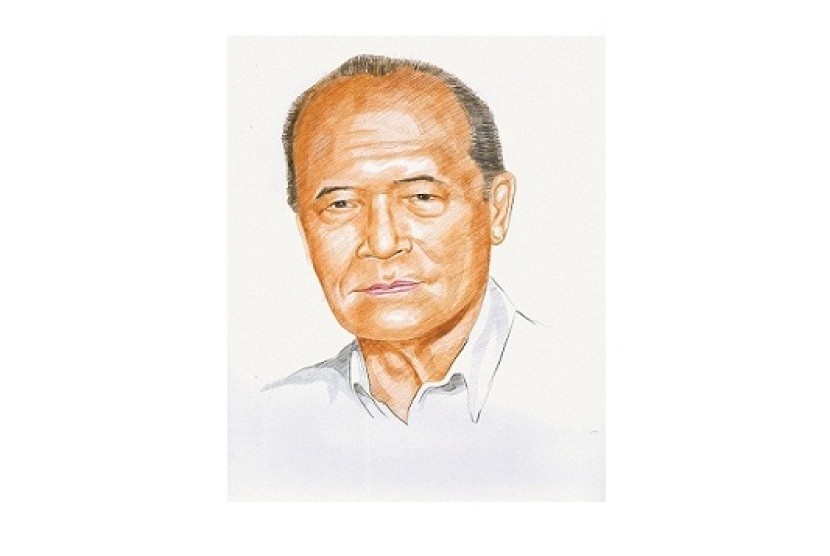REPUBLIKA.CO.ID, By: Ahmad Syafii Maarif
Based on the testimony of surah al-Baqarah verse 185, the Quran was revealed first in the month of Ramadan, the holy month of universal Muslim. The meaning of the verse is “The month of Ramadan in which was revealed the Qur’an, as guidance for the people and the explanations of the clues and as al- Furqan (the criterion of distinguishing between truth and falsehood)”.
Continuation of this paragraph, among others, spoke about the beginning of the fasting month and the obligation of the faithful to fast in it. Surah al- Baqarah one of the surah which derived in Medina period (622-632 AD) which were largely the verses derived in the second year of the hijri. Thus, the obligation of fasting was initiated since the beginning year of the Hijri. In the Mecca period (610-622 AD) that Ramadan fasting was not obligated.
The main objectives to be addressed by those who are fasting for Ramadan is to usurp the position of piety based on verse 183 of surah al-Baqarah. According to Muhammad Asad in “the Message of the Qur'an” (page 39, footnote 155), there were more three general objectives of this spiritual cleansing during Ramadan, that was, first, to commemorate the beginning of the Qur'an revelation that occurred in Ramadan, about 13 years before the Prophet migrated to Medina.
Second, to provide exercise of strict discipline. And third, to make everyone realize, through his own experience, how it feels hunger and thirst it, and in a way it could be obtained intrinsic understanding of the need of the poor.
In my reading, the Quran is a holy book that is pro-poor people, but at the same time anti-poverty. That is, poverty it must be temporary, it should not be rounded someone’s life on the lifetime. The order to issue zakat is strong evidence that Muslims should not be poor, although if the reality of history for centuries that the effect was the opposite. Most Muslims are wallowing with acute poverty, a fact that is contrary to the Qur'an’s message on the need to own property.
The meanings quote of verse 185 above were explained clearly that the Qur'an is a guide and criterion of distinguishing between truth and falsehood, between good and evil, both for the individual and for the collective life of the nation and across the country. But what is true in the Islamic world is that the verse was no longer observed. It possible for a Muslim personal level, the instructions is still relatively executed.
Likewise the Quran which serves as al-Furqan still held within the limits for individual purposes. Once concerns the relations between nations and Muslim countries, the criteria used was no longer the Quran, but nationalism and other worldly interests.
As a result, the housing of Muslim brotherhood at international level became fragile over the centuries. The internal fragility was compounded by madhhab conflict that was not endless.
All these things were facilitate others to divide the Islamic world with all the evil that accompanies it. The tragedy of Afghanistan, Iraq, Syria, Libya, Egypt, and others were the logical consequence of the elimination of the Qur'an instructions and the Qur'an as al-Furqan in political decision-making.
In the entire Muslim community in the earth in the Ramadan is almost certain that Muslims are prioritizes to read the Qur’an, it usually to pursue reward in the holy month. There is nothing wrong in this good habit.
However, my key questions are, why the Qur'an in relation between madhhab, relations, between nations and states, never again be used as guidelines and the main reference in the act? Is the chaos which was prevailing in the majority of Muslim nation since a few years, is not enough to awaken us all that the Quran was first revealed in Ramadan, had been abandoned far, intentionally or unintentionally, of our earthly life which is loaded with this problem?
Until the year 1436, in my rough calculations, Muslims from generation to generation have done as much as 1,434 times the Ramadan fast if it calculated from the second year of hijri, when the command of fasting was revealed. I do not know for sure, in the long time journey, how much of the Qur'an as al-Furqan functioned effectively in the collective life of the people.
Are we realizing that the Islamic world in the viciously global political constellation would make farther distance from the Quran? Formally, the anti-secularism attitude often echoed, but in reality, especially in the political sphere, the process of secularization profusely took place.
However, no matter what happened, the Qur'an still remains with us to this day and patiently awaits our attention to be used as guide and high guidance on together life.


